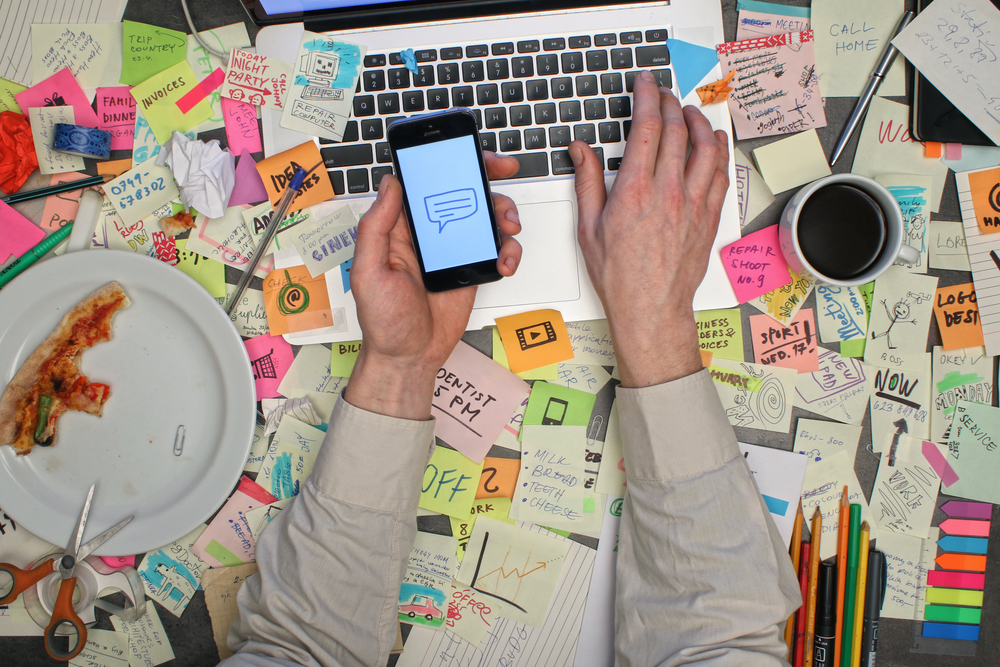I’ve been speaking about “busy” and burnout — navigating it, healing it, and avoiding it — for years. In my work, I’ve found there are several components, that when addressed proactively (and reactively as required), can support us in managing ourselves through it and even avoiding it all together.
There is the self-care component, of course. It’s essential.
There is the mindset and spirit component. Also essential.
And there is the culture component. Yep, essential.
These make up a powerful trifecta. They all need each other. They’re all contagious. And they’re fairly simple to address when we put our intentions, attention, energy, and care on them.
To shift our culture and the relationship we have with busy and burnout, we have to start with ourselves first; each of us individually doing what we can to nourish our own well-being and mindset. At the same time there are things we can do in our organizations, and with the teams we lead, to create a healthy “container” and systems that support us in doing so. When a bunch of us do this together, taking responsibility for our self-care and also helping things go well for others, we can better create a culture of thriving versus diving.
Where to start? So many ways to address this, here are three. I’ve found these apply regardless of role, industry, or profession; if you are a human being who wants to have more positive impact AND feel good doing it, lean into any of these.
1. Stop using “busy” and “burnout” as badges of honor.
Burnout and “busy” have become badges of honor that people often wear to demonstrate their value, commitment, or importance in an organization. Of course this is contagious. Have you ever witnessed the phenomenon of one person talking about their “busyness” or “burnout,” only to be topped, or one-upped, by another’s share? The unspoken communication and agreement that often gets created when we brag “busy” and “burnout” is that it is somehow a measure of our value and how committed we are.
I find, often, that when people are “bragging” busy and burnt out, it’s often reflective of bigger issues. These can range from being a cry for help, to unconscious habits, to competing for value. For example, in no particular order and not at all a complete list:
- a lack of connection to intention and purpose for how and why they’re spending their time,
- not feeling valued or secure and therefore needing to feel important or prove value,
- not being present, but rather scattered, distracted, exhausted, and going in 10 directions,
- not feeling safe to tell the truth of what’s really going on,
- not asking for help or getting support (or even knowing how),
- not being intentional with their time and focus,
- overcommitting or being unrealistic about bandwidth,
- not being present to their YES’s and WHY they say YES,
- chronic complaining that isn’t being turned into productive requests,
- poor systems for time management, communication, and organization,
- getting good mileage out of the sympathy that can come from others for “working so hard,”
- and sometimes, claiming “busy” is just a bad habit they’ve gone unconscious with
We each set the tone for this, AND the organization’s leadership and culture also sets the tone. If your leaders are participating in bragging and rewarding busy and burnout, you’re again creating agreements (intentionally or unintentionally, spoken or not) that this is the way things are. You’ll create more of the same.
What to do instead: stop the insanity. Instead of bragging “busy” and “burnt out,” brag boundaries, collaboration, and communication that fosters self-care, being intentional with time and energy, and safety for discussing what’s really happening and how people are feeling. Change your social and work equity and the unspoken agreements of what is being valued in your organization to something more life-giving and productive. Call these twelve issues (and others) out in loving ways, get curious, and explore ways to address and engage them differently.
This is a conversation; have it with yourself first and where you may be contributing to the noise (if only internally in your belief system), have it with your team, and then hop to — do something.
2. Optimize, fix, or eliminate systems that are creating more brain work or drama to manage.
Create systems, structures, and agreements that help people make self-care a priority, truth-telling a norm, time and energy management cool, feedback safe and inspiration, and conversations about workload, overwhelm, burnout, mental health, team health, and collaboration quality as normal as conversations about results, deadlines, fiscal updates, marketing, brand, and to-do’s.
Create more space for deep work, intentional thinking, and focus so people can do their best and most meaningful work. Did you know? Every time we get interrupted, switch tasks, or break flow, it takes us time and energy to get back into it — an average of 25 minutes to get back into flow (often longer). And we’re generally interrupted or break focus every 11 minutes (often more frequently). This is not only exhausting, and mind-numbing, it costs us business impact and results.
3. Stay connected to the “Four P’s”: Presence, Purpose, People, and Pleasure/Pain.
While burnout definitely relates to people working overtime, burning the candle at both ends, not tending to self-care, working within toxic environments, and more. In my experience, burnout is even more heavily impacted by a lack of connection to the Four P’s: Purpose (the why and one’s intention), People (the who), Pain/Pleasure/Play (emotional authenticity), and Presence (the here NOW). For more on the Four P’s see my article.
There is so much more we can do individually, on our teams, for our organizations to address and get in front of this epidemic. The first step is making a choice to get in there. Will you?
Photo courtesy of Shutterstock.
Originally posted on Thrive Global.
.png)






